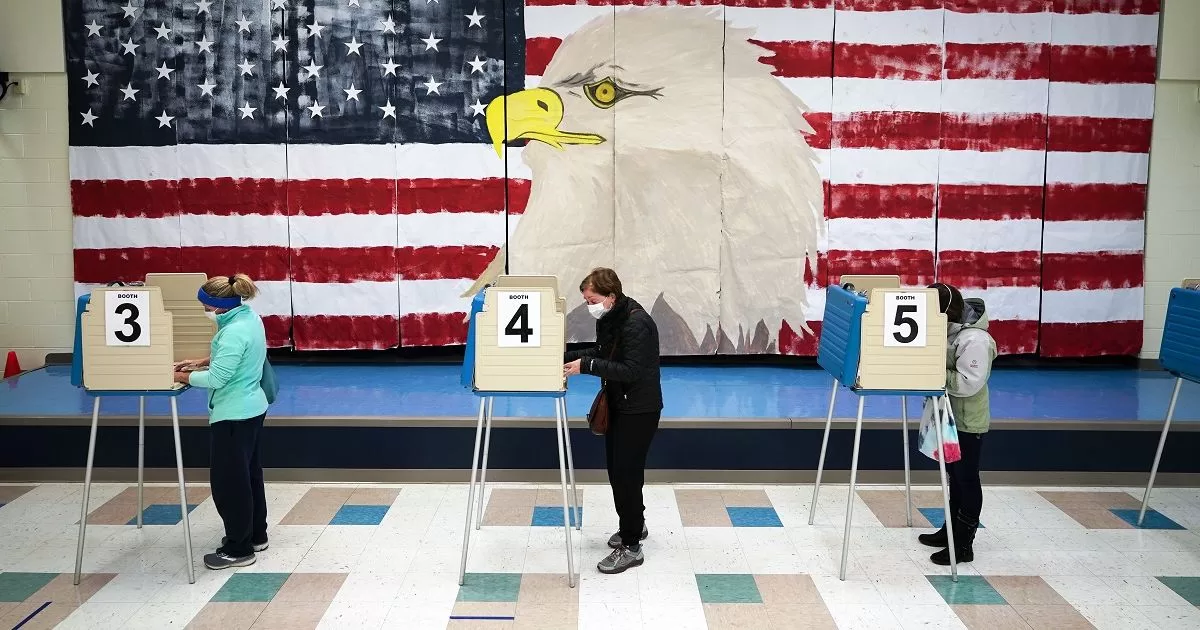WASHINGTON — At least 17.5 million Latinos will go to the polls in the November presidential elections in the United States, a vote between Republicans and Democrats, according to the NALEO fund.
It is 6.5% more than in 2020, the Educational Fund of the National Association of Latino Elected and Appointed Officials (NALEO) stated this Wednesday.
More than one in 10 voters (11.1%) will be Latino in the November 5 elections in which the president and 33 senators will be elected in addition to renewing the House of Representatives. That represents an increase of 20.5% compared to 2016.
NALEO predicts a possible increase in the share of the Latino vote in four states: California (6.1%), Florida (13.8%), Nevada (15.5%) and New York (12.4%).
But it depends on “if we can get Latinos to register,” said Arturo Vargas, the executive director of NALEO, at a press conference.
The impact of this community will increase due to its unstoppable rise, in contrast to the national non-Hispanic vote, which will rise only 1.5% compared to 2020 and in some states will even fall, according to the organization.
Democrats and conservatives cannot afford to lose the vote of the Latino electorate, but have they earned their trust?
Democrats lose ground
Although Hispanics have traditionally preferred Democrats, the situation has changed, the party’s vote has eroded and in 2020 Republican Donald Trump, a possible rival of President Joe Biden, gained strong support in several states. Hispanics maintain that the Democratic Party has leaned far left.
With almost nine months left until the elections, it is too early to predict the behavior of these voters.
According to surveys, they are concerned about the age of Biden, 81, who has had episodes of disorientation in public. Special counsel Robert Hur concluded in a report into the investigation into secret documents illegally held by Biden that Biden’s memory is “significantly limited.”
The publication describes President Biden’s memory as “blurred,” “flawed,” “poor,” and with “significant limitations.”
The economy
As in other elections, this community votes with its pocket in mind.
The economy and purchasing power are two essential factors, much more so than immigration. Inflation, the high cost of living and housing are factors that worry Hispanics.
The NALEO data “is based on trends” so “we have no way to incorporate (immigration) into our projections but it raises a big question” since it affects Florida, Texas, California or Arizona, among other states, said Rosalind Gold , the head of Public Policy of the Fund, at the press conference.
More than one topic
The immigration crisis is a central issue of these elections for Americans in general.
Republicans have turned it into an electoral spear against Biden, whom they accuse of having allowed the country to be “invaded” by migrants on the border with Mexico. More than 9 million encounters of undocumented migrants are reported by the Customs and Border Protection Office (CBP), since Biden, the Democrat, arrived at the White House.
Biden has disappointed many Latinos by failing to fulfill his promise to grant citizenship to millions of people who have been living illegally in the United States for years.
In any case, the Hispanic vote is not monolithic.
“They are not a single-issue community like others,” concludes Dorian Caal, director of civic engagement research at NALEO.
Source: With information from AFP


